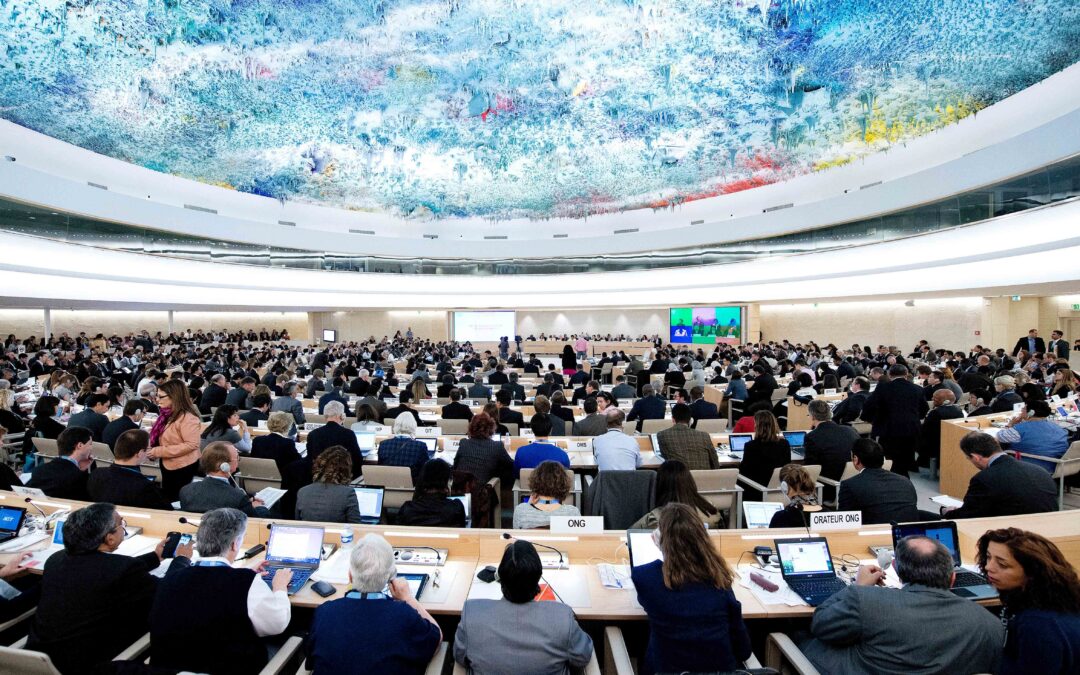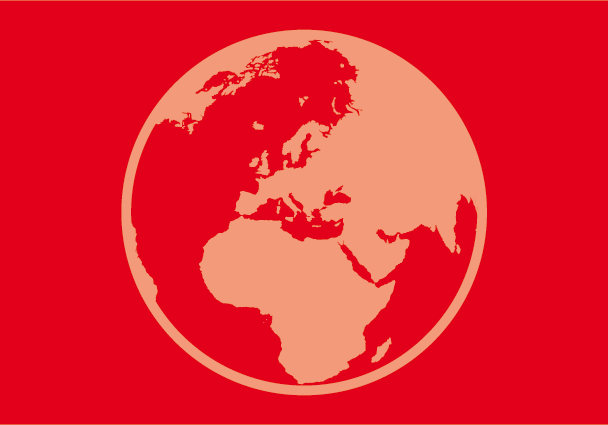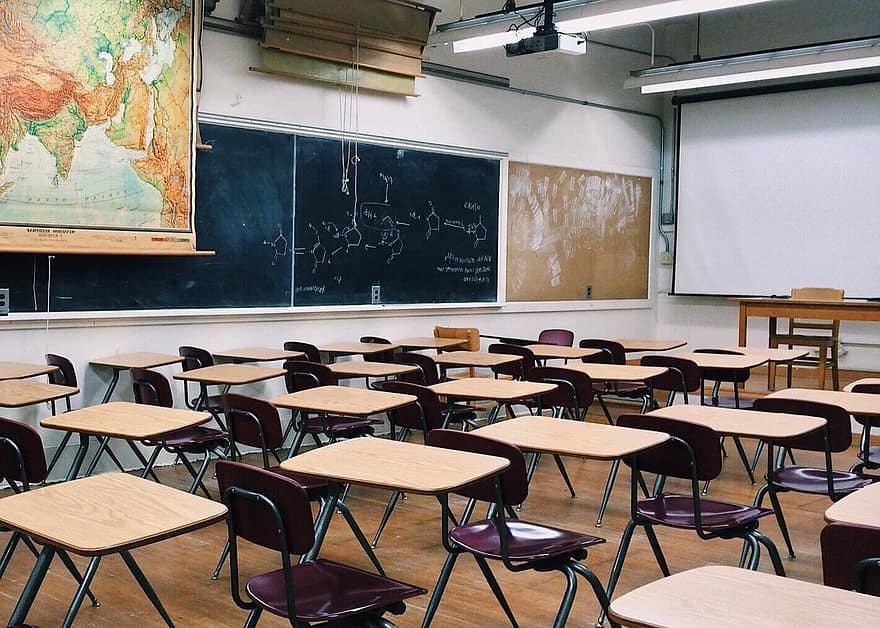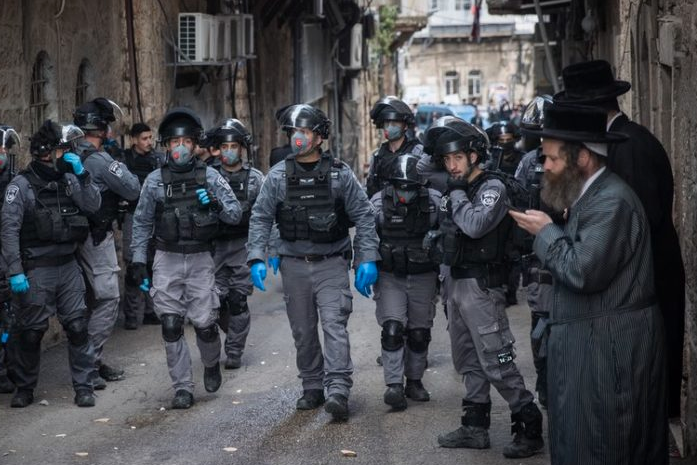
Sep 22, 2020 | Advocacy, News
States should help pave the way towards credible accountability and redress for the people of Yemen by renewing and strengthening international investigations into war crimes, other serious violations of international humanitarian law, and grave human rights abuses during this 45th Session of the HRC, the ICJ and 23 other organizations said today.
Yemen is suffering from an “acute accountability gap,” according to the UN Group of Eminent Experts (GEE) on Yemen, which released its third report on September 9, 2020.
With COVID-19 threatening the lives and livelihoods of millions across Yemen, peace talks floundering, and airstrikes, shelling and attacks impacting civilians once again increasing, the reality for millions of Yemeni civilians is growing ever more bleak.
This session, the Human Rights Council has the opportunity to pave the way towards credible accountability and redress for victims and survivors in Yemen.
People in Yemen have experienced grave abuses since the conflict began in 2014, when Ansar Allah (the Houthi armed group) and military units loyal to former president Ali Abdullah Saleh took control of the capital, Sana’a, and escalated in 2015 when the Saudi/UAE-led coalition militarily intervened on the side of the Yemeni government.
With the conflict in its sixth year, millions of Yemenis are without adequate food, water, shelter or healthcare. The parties to the conflict impede the flow of life-saving goods into and around the country, attack critical infrastructure, and misdirect goods and their revenues to their own coffers and loyalists.
Thousands of civilians have been killed, wounded and otherwise harmed by airstrikes that violate international humanitarian law, indiscriminate shelling and the use of banned anti-personnel landmines.
The societal fabric has torn, with expression, speech, peaceful protest and movement increasingly restricted, and political and other identity-based divisions weaponized by those in power.
The human rights and humanitarian catastrophe in Yemen is man-made, and was avoidable. The parties to the conflict continue to hold the vast majority of power in and over Yemen.
For Yemen’s trajectory to change, the behavior of the parties to the conflict and their backers needs to change. As of September 2020, perpetrators have gone unpunished, states responsible for violations have faced no real consequences, parties have rarely acknowledged fault or taken measures to protect civilians, suppliers keep the arms used for international humanitarian law violations, and victims have been denied justice and redress.
In 2017, the Council established the GEE to report on violations of international law in Yemen and, where possible, to identify those responsible. The Council renewed the GEE’s mandate in 2018 and 2019, despite opposition from the Saudi/UAE-led coalition.
In its third report, the UN experts found the international community “can and should” do more to “help bridge the acute accountability gap” in Yemen.
The experts provided a list of specific recommendations, including for the Security Council to refer the situation in Yemen to the International Criminal Court and to expand the list of persons subject to Security Council sanctions.
The GEE supported the establishment of an investigative body, similar to the International, Impartial and Independent Mechanism for Syria, and specifically called on the Council to ensure the situation of human rights in Yemen remains on its agenda, including by ensuring adequate resources are provided to the GEE for the collection, preservation and analysis of information related to violations and crimes.
In the longer term, the Group encouraged “further dialogue about the creation of a special tribunal such as a ‘hybrid tribunal’ to prosecute cases of those most responsible,” reiterated the importance of victims’ right to a remedy, including reparations, and called for human rights to be “at the heart of any future peace negotiations,” including that “no steps are taken that would undermine respect for human rights and accountability, such as granting blanket amnesties.” 2
The GEE also reiterated concerns that states supplying arms to parties to the conflict, including to Saudi Arabia and the UAE, may be violating their obligations under the Arms Trade Treaty, and that this support may amount to aiding and assisting internationally wrongful acts.
Today, 24 Yemeni, regional, and international civil society organizations, including the ICJ, came together to call on the Council to endorse the GEE’s report, including its findings on accountability, and to take concrete steps this Council session to pave the way towards credible justice for Yemen.
The 24 organizations are calling on the Council to renew and strengthen the GEE’s mandate this September, including to collect, consolidate, preserve and analyze evidence related to, and clarify responsibility for, the most serious crimes under international law and violations of international law committed in Yemen since 2014.
The organizations are also calling on the Council to task the GEE with issuing a special report advising states on practical steps they can take to help ensure justice and redress for the tens of thousands of Yemeni civilians unlawfully harmed by the warring parties throughout this conflict.

Sep 1, 2020 | News, Publications, Reports, Thematic reports
In a new report published today, the ICJ called on all States to ensure that their responses to the public health emergency brought on by the COVID-19 comply with the international human rights law and the right to health.
The report emphasized the particularly acute and discriminatory impact of the pandemic on already marginalized people and the need for access to health facilities, goods and services necessary to combat COVID-19 without discrimination.
The report Living Like People Who Die Slowly: The Need for Right to Health Compliant COVID-19 Responses documents the adverse human rights effects wrought by the COVID-19 pandemic.
The title comes from the words of Mama Yuli, an Indonesian transwoman, who has said that the pandemic left many elderly transwomen feeling like “they live like people who die slowly”.
The report emphasizes the need for a human rights and rule of law-based approach to the pandemic, with States working cooperatively to address a health crisis that by its nature knows no national boundaries.
“The COVID-19 pandemic is public health crisis that presents immeasurable threats to human rights and the rule of law globally, said Ian Seiderman, the ICJ’s Legal and Policy Director.
“But what is crucial is that States responses themselves not only respond immediately and effectively to COVID-19 as a public health emergency, but also as a human rights crisis”, he added.
Building on the ICJ’s earlier responses to COVID-19, the report details the disproportionate impact of COVID-19 on non-citizens, older persons, women and girls, LGBT persons, persons deprived of their liberty, persons with disabilities, sex workers and healthcare workers.
The report also emphasizes the need for the provision of health information by State authorities in the context of COVID-19 and scrutinizes measures taken by States which have often curbed the rights to freedom of expression, information and privacy.
For example, though “contracting tracing” measures may be effective they must also be human rights compliant and information gathered through such measures should not be used inappropriately or as an instrument of repression of individuals and human defenders.
Acknowledging the interconnectedness of all human rights, the report emphasizes the need for States to ensure provision and protection of access to the “social determinants of health” such as housing, food and water, themselves also internationally protected rights.
The report provides recommendations to States that may assist in ensuring right to health and human rights compliant responses to COVID-19.
The ICJ called on States to respect the various guidance offered by UN human rights treaty bodies and independent experts on how best to comply with their human rights obligations while responding to the pandemic.
The human rights system provides important guidance to States that was not available, for example, during the 1918 influenza pandemic, which ultimately resulted in an estimated 50 million deaths.
“States must heed these calls for a human rights and rule of law-based response to COVID-19, as failure to do so will certainly result in death and human suffering that can still be avoided,” said Seiderman.
The report also raises the importance of compliance by businesses, including particularly private actors in the healthcare sector, with their responsibility to respect human rights, including the right to health.
This will be critical, for example, in ensuring the success of combined efforts of States and private companies in the development and ultimate distribution of a COVID-19 vaccine.
Contact
Timothy Fish Hodgson, ICJ Legal Adviser on Economic, Social and Cultural Rights, t: +27828719905 e: timothy.hodgson@icj.org
Download
Universal-Global Health COVID-19 Exec Sum-Publications-Reports-Thematic Reports-2020-ENG (Executive Summary, in PDF)
Universal-Global Health COVID-19-Publications-Reports-Thematic Reports-2020-ENG (Full report, in PDF)
Myanmar-ICJ-Right-to-Health-Report-2021-BUR.pdf (Full report in Burmese)
Read also
Human Rights in the time of COVID-19: Front and Centre – ICJ news, articles, op-eds, legal blogs, videos
COVID-19 Symposium: COVID-19 Responses and State Obligations Concerning the Right to Health (Part 1)
COVID-19 Symposium: COVID-19 Responses and State Obligations Concerning the Right to Health (Part 2)
Watch

Jul 31, 2020 | Advocacy, Open letters
The ICJ and the South African Human Rights Defenders Network (SAHRDN) have written to the United Nations Special Rapporteur on the Situation of Human Rights Defenders, the African Commission on Human and Peoples’ Rights Special Rapporteur on Human Rights Defenders, and the Chairperson of African Commission on Human and Peoples’ Rights.
They have detailed the continued intimidation and harassment of the residents of Happiness village by the South African National Defence Force (SANDF).
“We have written to the Special Rapporteurs because the SANDF is unrelenting in its abuse of the resident’s despite the best efforts of their legal representatives and repeated court orders,” said ICJ Legal Adviser in South Africa Tim Fish Hodgson.
“A community leader was placed under house arrest guarded by four soldiers for seven days. Another resident was subjected to a punishment by which was told to lie flat on the ground and ‘pray to his God’ for simply leaving his home. Others have been assaulted. The SANDF deliberately conducts military exercises near the residents’ homes late at night to scare and intimidate them. All this with utter disregard for the law and in direct violation of a number of court judgments and orders”, he added.
The residents, who were forcibly and violently evicted from Marievale military base beginning in 2017, have repeatedly been granted court orders by the High Court declaring such evictions unlawful and directing the SANDF to refrain from harassing, threatening and intimidating the residents and not to restrict their movement.
Despite this, and in the midst of the COVID-19 pandemic, further evictions and constant harassment and intimidation continues unabated and has intensified to a point that the residents describe the SANDF as having “laid siege” to their homes in Happiness Village which is adjacent to Marievale military base.
Soldiers now police checkpoints, preventing visitors from entering the area and even journalists have been prevented from entering Happiness Village. The residents’ legal representatives were only allowed to visit a single community representative under armed military guard.
As the letter reveals, the SANDF’s actions amount to violations of the residents’ right to adequate housing protection in terms of the South African Constitution, the African Charter on Human and People’s Rights and the International Covenant on Economic, Social and Cultural Rights.
The intimidation, harassment, humiliation and assault of the residents’ amount to violations of the residents’ rights to liberty and security of person and may also amount to cruel, inhumane and degrading treatment or punishment in violation of the South African Constitution and international human rights law.
They seem to be geared at making the resident’s lives intolerable in order to secure evictions “through the backdoor”, which is explicitly prohibited in South African law.
The residents, represented by Lawyers for Human Rights, will once again be in urgent court on July 31 seeking an interdict to prevent further harassment, intimidation and restrictions on their movement by the SANDF. The legal representatives of the SANDF have indicated that they intend to oppose their application.
The ICJ has therefore implored the Special Rapporteurs to:
1. Call on the SANDF, the Minister of Defence and Military Veterans and on the Ekurhuleni Municipality to desist from any further evictions, relocation, intimidation, harassment, humiliation, and assault of the Marievale community residents;
2. Call on the SANDF, the Minister of Defence and Military Veterans and the Ekurhuleni Municipality to immediately lift and ensure the non-recurrence of restrictions on the movement on Happiness Village residents;
3. Call on the President of South Africa, as the Commander in Chief of the SANDF, to take appropriate action to ensure that the human rights violations that the residents of Marievale have suffered at the hands of the SANDF on a continuous basis since 2017 be investigated, and that appropriate action be taken to ensure access to justice and effective remedies for the residents; and
4. Call on the Parliamentary Portfolio Committee on Defence and Military Veterans to ensure the accountability of the Minister of Defence and Military Veterans for the human rights violations to which the SANDF has subjected the residents on a continuous basis since 2017.
Read the full letter here.
SouthAfrica-SAHRDN-ICJ Letter to SRs on HRDs-Advocacy-open letters-2020-ENG
Contact:
Tim Fish Hodgson (ICJ Legal Adviser) t: +27828719905; e: timothy.hodgson(a)icj.org

Jul 31, 2020 | Agendas, Events, News
The ICJ, together with the Global Initiative on Economic, Social and Cultural Rights (GI-ESCR) and the Right to Education Initiative (RTE), held webinars on 24 and 31 July.
The discussions explored The Guiding Principles on the Human Rights Obligations of States to provide public education and to regulate private involvement in education (Abidjan Principles) and their application in the context of COVID-19.
The webinars focused respectively on public education and private education.
Participants included judges and representatives of civil society organizations from Kenya, Uganda, South Africa and Sierra Leone.
“The aim of the conversation in these webinars is to better understand the problems facing civil society and judiciaries in the four countries in ensuring the protection of the right to education in the context of Covid-19 and the increased privatization of education,” said ICJ Commissioner Justice Jamesina King of Sierra Leone.
The Abidjan Principles, based in large measures on existing international law and standards, were developed by leading international experts and adopted in 2019.
They clarify and set out elements of State obligations to uphold the right to education and related standards in both public and private educational settings.
Participants were able to deepen their understanding of the Abidjan Principles as well as the increased pressure placed on education systems across Africa as a result of COVID-19.
“COVID-19 has dramatically exacerbated already well-known issues in the realization of the right to education” and the “divide in quality of access to education between public and private sectors,” added Justice King.
“Private actors in particular… have been reported to have capitalized on the pandemic to extend their business in the education sectors.”
Participants raised concerns about the use of public funds to support private actors in education, an issue which is addressed by the Abidjan Principles.
Ashina Mtsumi from the GI-ESCR, summarized the Abidjan Principles and emphasized that “States’ first priority should be public education, as there is no obligation for states to fund private actors in education.”
A theme emerging from the discussions was the important role of the State in regulating private actors in education in the context of the global pandemic. Judges discussed the role of the judiciaries in their respective countries in ensuring the protection of the right to education.
“Can courts force private institutions to continue [operating] or even reduce school fees as an incidence of the right to education?,” Justice Joel Ngugi of Kenya asked.
Justice Ngugi also highlighted the need for governments to ensure that schools are safe for all learners in the context of COVID-19.
Judge Lydia Mugambe said that while in Uganda the pandemic had seen some private schools continuing with online learning, learners in public schools had had to depend on State provision of learning through newspapers and news stations which had not been sufficient. In the COVID-19 context, States must ensure that they continue to “require private instructional educational institutions to meet the minimum standards set by the State”, as indicated by the Abidjan Principles.
“The real problem is that our infrastructure is bad, the education system is bad and we have had a constitutional right to education since 1994 and I am embarrassed to say that the Covid-19 crisis has not exacerbated the problems, but has exposed the problems and have left no place to hide for years and years of government negligence,” said former Justice of the Constitutional Court in South Africa Zak Yacoob.
Representative from civil society organizations from all four countries emphasized the increasing risks introduced to the right to education as a result of privatization of education in Africa.
Watch the first webinar here.
Contact:
Khanyo Farisè (ICJ Legal Adviser) e: Nokukhanya.Farise(a)icj.org
Tim Fish Hodgson (ICJ Legal Adviser) t: +27828719905; e: timothy.hodgson(a)icj.org

Jul 24, 2020 | News
The ICJ urges Israel to repeal or amend the “Great Coronavirus Law” adopted on 23 July. In the context of concerns about the emergency measures taken in recent months, the Law restricts parliamentary oversight of measures to address the COVID-19 pandemic in a manner that could undermine human rights protection and the rule of law.
The Law would enter into force on 10 August, replacing a “placeholder” law adopted by the Knesset (Israel’s parliament) earlier in July that currently gives even wider powers to the executive government but will expire on that date.
Under the new Law, the executive government has authority to declare COVID-19-related states of emergency for 60 days at a time until 30 June 2021, although the Knesset retains the power to revoke any such state of emergency.
Once a state of emergency is in place, the Law accords the Government the power to adopt “emergency regulations” for renewable periods of 28 or 14 days, depending on the type of restrictions envisaged.
The ability of Knesset committees to reverse such “emergency regulations” is significantly restricted under the Law.
As the ICJ highlighted in a briefing paper, “emergency regulations” already adopted since March 2020, and continued under the “placeholder” law, have failed in many respects to comply with international law and standards on the declaration of a state of emergency and related formal and substantive requirements under article 4 of the the International Covenant on Civil and Political Rights (ICCPR); the protection of the right to privacy with regard to the “tracking programme” of Israeli citizens; and respect for detainees’ rights to independent legal counsel and to family visits.
“The emergency powers legislation significantly weakens the ordinary role of the Parliament and risks paving the way for further arbitrary restrictions on human rights beyond those already seen in the regulations adopted to date,” said Said Benarbia, the ICJ’s MENA Programme Director.
“The Law should be repealed or amended to ensure effective oversight by Parliament over all emergency measures.”
Since March 2020, the Israeli Government has adopted a number of “emergency regulations” with the purported aim of tackling the COVID-19 pandemic.
“Respecting international law while tackling the COVID-19 pandemic is not optional, Israel must handle the pandemic in a way that guarantees the full enjoyment of human rights,” Benarbia added.
Contact
Said Benarbia, Director, ICJ Middle East and North Africa Programme, t: +41-22-979-3817; e: said.benarbia(a)icj.org









